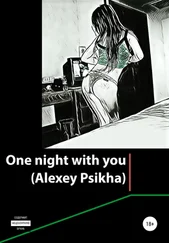“Whew. Hot, isn’t it?” The thin woman lifted off her straw hat, and her hair came with it, loosening from her chignon, then falling around her face in lank, damp strands. She pulled a pencil and a crossword from her purse and set to work.
All the while, Frances examined the man in her peripheral vision. He was sitting sideways, leaning against the window. He craned to see Frances over the backrest. Brown checked suit, agate bolo tie cinched tight under his collar. He was thirty, maybe. His hair was a little long, parted down the middle.
“Hey.” He stretched a narrow hand toward her, flicked her book. “Pretty girls should smile.”
People were always telling Frances to smile; apparently her face in its natural state was pinched and sulky. “Well, you aren’t beautiful,” her mother had said thoughtfully this summer. “But you’re perfectly fine when you smile.” Frances hated the implication that she ought to appear good-natured for someone else’s benefit. Who did this man — some ranch hand in his absurd city best — think he was? Still, he had called her pretty, and that was something. She raised an eyebrow in a way she hoped looked disdainful and queenly. “If I felt like smiling,” she said, “I would.”
He laughed, not unkindly. The man’s breath was damp and garlicky from, Frances imagined, some massive ranch breakfast eaten in a hot kitchen. Greasy yellow eggs, beans, fat sausages splitting their burned skins. The thought was nauseating, and Frances turned her head.
“You don’t make yourself sick, reading like that?”
Frances shook her head. She had absolutely no desire to talk to this man. She would not talk to this man. But her silence hung between them, unmistakable and rude. “No,” she said finally. “I never get carsick.”
“Lucky. I was in the Navy, and I never did get used to the seasickness.”
“Well,” said Frances, “it can’t help, sitting backward like that.” Rude , her mother would call her; Frances preferred spirited .
“What are you reading?”
What could Thomas Hardy possibly mean to him? Frances displayed the cover, feeling superior.
“So you’re a smarty-pants,” said the man. “Huh.”
Frances had begun Tess of the D’Urbervilles that summer with trepidation, and she was proud of herself for making it as far as she had. Even more than the story, Frances enjoyed the image of herself reading this fat book with its forbidding, foreign-sounding title. It was a prop, exactly the book a girl with a powder-blue valise would be reading. And apparently, as a prop it was working.
The fellow lit a cigarette, exhaled, still watching her. “I’m not much for reading. Myself, I’m a painter.”
Frances brightened and set the book in her lap. “Really? What do you paint? Figures?” She blushed.
“Nudes, you mean? That’s what you’re asking, isn’t it?”
Frances’s blush deepened. She didn’t deny it.
He laughed. “I’d say I’m more of an action painter.” He scratched his mustache with a finger, eyes on her, then took another drag.
Did that mean what she thought it meant? Was Frances being propositioned? He was thinking of her that way, wasn’t he? Certainly he wasn’t talking to the woman across the aisle. And why was that? Because the woman across the aisle was plain and had an entirely untended mustache. Frances ran her finger over her own upper lip, plucked last night in preparation for Santa Fe.
And now Frances wasn’t just a girl going into the world, but a girl whose virtue was being tested. That it might not withstand the test was a thrilling prospect. Frances suddenly felt deeply certain that something momentous would happen this weekend. Not with this fellow, though he really wasn’t bad-looking, despite his breath, and it was possible that the breath was just a result of his devil-may-care artistic lifestyle. Too many reefers, maybe.
Men in Raton utterly overlooked Frances. Only two boys had ever asked her on dates, both pitiful specimens still awaiting their growth spurts. And now what Frances had always suspected was true: She did have sex appeal. Under her bodice the life throbbed quick and warm.
Frances couldn’t wait to tell Nancy. Nancy was involved in endless drama with bevies of boys, while Frances, with her modest clothes and overprotective mother, had to play the supporting role to her younger cousin, probing for details, shaking her head in scandalized admiration, offering advice on matters she had absolutely no personal experience with. At least Frances lived in Raton; Nancy didn’t know how little she knew.
“Are you going to the Fiestas?” She smiled in a way she hoped was coy. “You must be, dressed like that.” Handsome , she probably should have said, but it really was a terrible suit.
“You’ll be there?” His green eyes — lovely eyes, now that she was looking — were bright and amused. Was he laughing at her? “Are you asking me out? Maybe you’d like to get a drink with me.”
Frances straightened her sweater; she wanted to remove it, show off her arms, but was aware of the hole in her dress. “ You’d like that, wouldn’t you?” Who knew she had it in her, this sauciness!
“You should be careful.” The painter twisted to stub his cigarette out in the ashtray, and Frances noted that his nails were clean. She would have thought he’d have paint around his cuticles. “You don’t know a thing about me.”
“ You don’t know a thing about me ,” Frances retorted.
The painter shook his head, bemused, and faced front. Frances kept waiting for him to turn back — he’d spoken to her first, after all — and once she nearly said something, but he bundled his jacket for a pillow and fell asleep against the window.
For the rest of the ride Frances went over the interaction, and she didn’t forget her pique until they entered Santa Fe. As they approached downtown, the traffic thickened and tangled; at every street, it seemed, they stopped for crowds of happy pedestrians to cross. The passengers watched from the windows, and laughter and shouts rose above the rumble of the vehicles. Frances’s spirits soared.
When they pulled up in front of the bus depot on Water Street, the painter stood before they’d even stopped and reached for his canvas bag. Then he leaned over her and squinted out Frances’s window, as if scanning the crowded sidewalk for the person who’d come to pick him up. Frances braced herself for the smell of his breath, and then it came. “Little whore,” he said in her ear, so softly she wondered if she’d imagined it, and before she’d even lifted her gaze to him, he was moving quickly down the aisle, stepping off the bus.
Frances flushed and for what felt like a long time couldn’t move. Had anyone heard? But they were all disembarking now, straightening hats and shirt collars. Up at the front of the bus, her father was shaking hands and tipping his hat, helping the woman with the crochet down the steps.
Frances took a deep breath to compose herself. That painter was nothing, no one. He probably wasn’t even a painter. She could see him on the sidewalk. He’d bought a paper from the newsstand by the depot and was paging through it. Go away, go away, go away, thought Frances. She would not budge from this bus until he’d disappeared down the street.
Heart pounding, she arranged her purse and her swimming bag on her shoulders, straightened her cardigan.
“Enjoy the Fiestas,” said the thin woman, setting her hat back on her head.
It was then that Frances noticed he’d left his lunch sack on his seat. Suddenly she was filled with rage at this man who’d had the gall to speak to her in the first place, to tell her to smile and then to insult her when she did. She would step off the bus, call to him, smiling and sunny—“Sir, your lunch!”—wave the paper sack over her head, make as if to hand it to him. And then, when he reached for it — shamed by her kindness — Frances would open her hand, drop it in the street, and grind his sandwich under her heel.
Читать дальше












